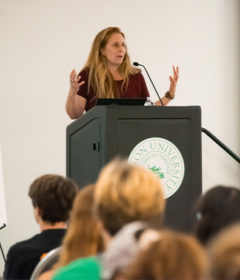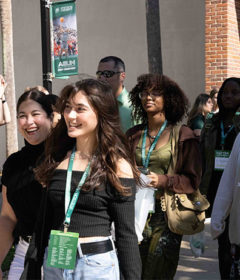Nelson Mandela’s Grandson to speak at Stetson on Tuesday, March 26, at 7 p.m.
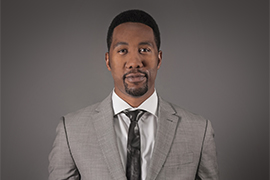
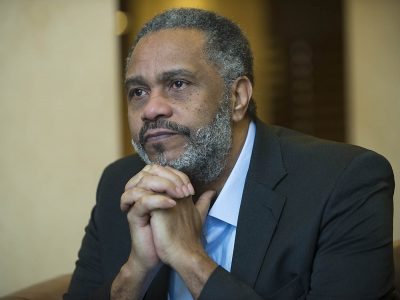
A year before Alabama prosecutor Bob McGregor died in 2010, he wrote in his memoir: “I have never had as strong a feeling in trying any other case that the defendant just radiated guilt and pure evil as much as in the Hinton trial.”
In April 2015 that defendant, Anthony Ray Hinton, walked out of a Birmingham jail as a free man, exonerated after spending 30 years on Alabama’s death row for two murders he didn’t commit. Hinton is one of the longest-serving prisoners facing execution in America who has been proven innocent and released, said his lead attorney Bryan Stevenson of the Equal Justice Initiative, which took up his case in 2002.
Since his release, Hinton has been “telling my story to anyone who will listen,” he wrote in his 2018 memoir, “The Sun Does Shine: How I Found Life and Freedom on Death Row.”
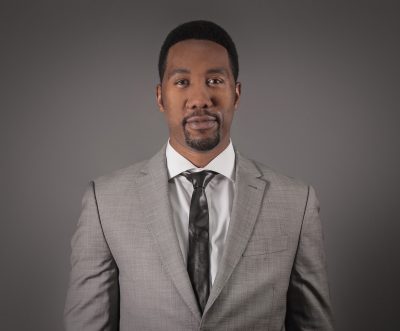
Hinton will speak on his experiences and social justice issues at 7 p.m. Tuesday, March 19, in the Stetson Room of the Carlton Union Building as part of Stetson’s Many Voices, One Stetson, an initiative tied to the university’s foundational goal to “Be a Diverse Community of Inclusive Excellence.”
Social justice issues also will take center stage when Ndaba Mandela, grandson of Nelson Mandela, speaks at 7 p.m. Tuesday, March 26, in the Stetson Room, as part of Many Voices, One Stetson.
Both Hinton and Mandela “are internationally known activists for social justice,” said Joanne Harris-Duff, Stetson’s Director of Diversity and Inclusion. Their appearance “really promotes Stetson’s commitment to inclusion and equality. They will complement students, faculty and staff on our campus who are activists in their own right. I know they will inspire new activists or people who haven’t thought about how they can make a difference in regards to social justice. They are both going to be incredibly inspirational.”
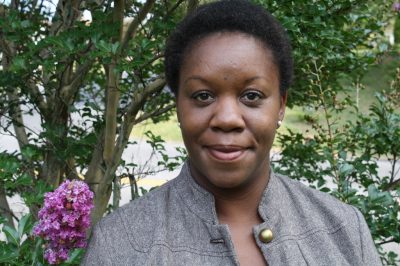
Both lectures are free and open to the public, and will offer Cultural Credit for Stetson students.
“Anthony Ray Hinton’s story showcases the deeply rooted racial inequities in the United States and the impact it has had on his life,” said Savannah-Jane Griffin, Stetson’s Executive Director of Community Engagement and Inclusive Excellence. “Ndaba Mandela, the grandson of Nelson Mandela, will be talking about the Mandela legacy, what international activism looks like, and emphasizing the importance of actively getting involved in the community.
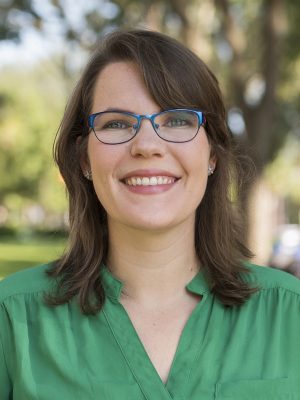
“At Stetson University, we are preparing our students, as future leaders of the world, to help solve some of the most complex world problems. Both of these speakers address large societal issues that I believe are important for our community to hear and learn from.”
‘A Textbook Example of Injustice’
Hinton’s ordeal began in 1985 when a restaurant in a Birmingham suburb was robbed and the manager was shot but not seriously wounded, according to an account on eji.org, the website of the Equal Justice Initiative. That manager identified Hinton from a photo lineup, even though Hinton, then 29 years old, was working in a locked warehouse fifteen miles away at the time of the crime.
Police seized an old revolver belonging to Hinton’s mother, and state firearm examiners said that gun was used in that robbery and two recent murders. Hinton, who is African American, was convicted by an all-white jury and sentenced to death.
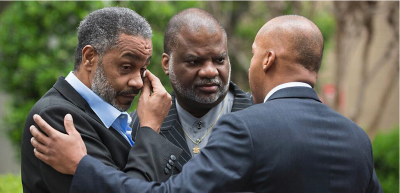
For more than a decade, attorneys with the Equal Justice Initiative sought to have state officials re-examine the evidence in Hinton’s case, but all failed to do so.
In 2014, the United States Supreme Court unanimously overturned his conviction based on his attorney’s deficient representation, and a new trial was ordered. The state’s evidence was discredited, by a former FBI expert who had testified in 2002 that the bullets from all three crimes could not be matched to a single gun at all, much less to the gun of Hinton’s mother.
“Race, poverty, inadequate legal assistance, and prosecutorial indifference to innocence conspired to create a textbook example of injustice,” Stevenson said on eji.org.
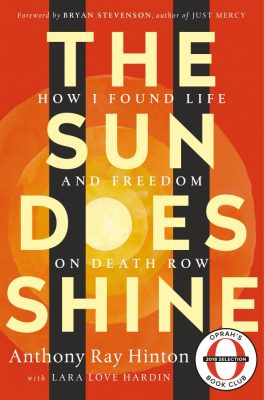
“It hasn’t been easy to get used to life outside of death row,” Hinton wrote in his 2018 memoir, which opens by quoting his prosecutor’s character assassination, then details his 30-year ordeal and his new life upon his exoneration. “Computers and the Internet and Skype and cell phones and text messaging and email — I had none of that. A whole world of technology happened.”
Hinton’s memoir also recounts his marriages to Halle Berry, Sandra Bullock and Kim Kardashian, his tea with the Queen of England, and his becoming the only man to win the Most Valuable Player awards in the NFL, the NBA and Major League Baseball – all scenarios that he purposefully conjured from his imagination as he struggled to survive imprisonment.
“Sometimes I wonder if I’m still imagining things and I’m actually locked down in my cell but have had a complete break with reality,” Hinton wrote. These days, he added, “People laugh when I tell them about my marriages to Hallie and Sandra and Kim. But laughing puts people at ease in a way that helps them to listen. It was true on death row and is true outside of death row.”
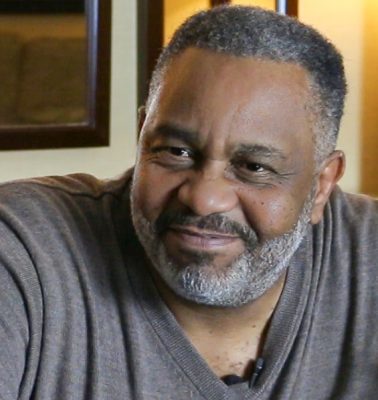
Photo/Cody Love
Hinton said he will “go where I’m asked to go” to speak about his life. He has sat down with Oprah Winfrey for one of her SuperSoul Conversations podcasts, and he travelled to the private island of business magnate Richard Branson where he told his story “to a group of celebrities and others who are working hard to end the death penalty.”
He also has spoken at “churches, colleges and small meeting rooms. I’m a curiosity — the man who survived death row. But I’m also a voice. I’m a voice for every man who still sits on the row. ‘I believe in justice,’ I tell crowds of people. But I don’t believe in cruelty. I don’t believe in useless punishment.”
Learning Life Lessons from Nelson Mandela
Ndaba Mandela will present a keynote address a week later on March 26 that will include his life experiences as Nelson Mandela’s grandson. He also will lead a small closed workshop for students during his campus appearance.
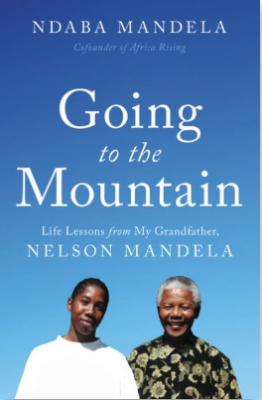
In his native South Africa, Nelson Mandela was a leading member of the African National Congress, which sought to overthrow that country’s apartheid, a system of racial segregation that the white-only government had established to privilege whites. Nelson Mandela served 27 years in prison until pressure on the government led to his release in 1990 and the beginning of the dismantlement of apartheid. He served as president of South Africa from 1994 to 1999 as the country’s first black head of state and as the first elected in a fully representative democratic election.
In June 2018, Ndaba Mandela released his book “Going to the Mountain: Life Lessons from My Grandfather, Nelson Mandela.”
“I carry with me the values of my grandfather,” Ndaba Mandela says in his official bio. “He told me to always be humble. He once said to me, ‘When you start working, don’t drive a Jaguar!’ I saw him interact with kings and presidents, and with our household cook. He treated everyone the same. This was his key value.”
Ndaba Mandela is the co-founder and co-chairman of the Africa Rising Foundation, an organization dedicated to promoting a positive image of Africa around the world and to increasing its potential for growth in education, employment and international corporate alliances for profit and partnership.
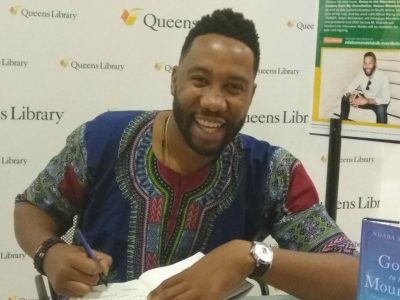
“I am an African, and I know what it means to be African, and I’m proud of it,” he said.
He also serves as an executive director UN AIDS, which seeks to end discrimination around HIV/AIDS through the power of soccer.
At Stetson, his closed workshop will give 25 students the opportunity to speak with him on the topics of education, interconnectivity and employment, and how those matters can be used to empower youth. He also will discuss his grandfather’s message of the importance of education, and how to create the necessary support system of teachers, parents, civic leaders and mentors needed to succeed.
Mandela’s appearance is being presented by the Multicultural Student Council, in partnerships with the Office of Diversity & Inclusion (ODI) and Student Government Association (SGA).
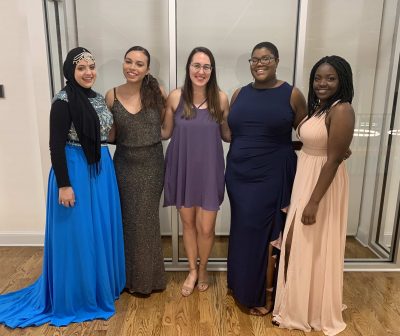
Angela Osmar.
Both speakers are part of the Many Voices, One Stetson initiative, announced by Stetson President Wendy B. Libby, Ph.D., in August 2016.
“The goal is to remind us that individual and collective action can make a difference,” she said at the time. The initiative seeks to foster “conversations, with civility, that explore the issues impacting us. Conversations that are safe and courageous. Conversations that with the right framework can allow us to disagree with one another without being disagreeable. Many Voices, One Stetson is an effort to give our community the space and support it needs to discuss the tough subjects that separate us.”
— Rick de Yampert

